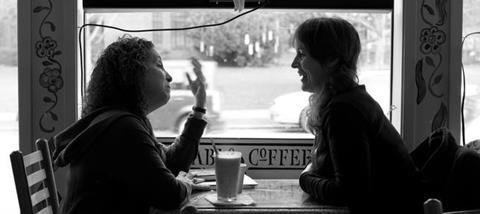
He blasted their comfortable, religiously constructed borders, and reached out with his reconciling love to outsiders - outcasts, women of ill repute, hated foreigners, and even soldiers of the occupying Roman army.
Although his ministry was carried out in a pretty reduced geographical area, Jesus understood that he was sent beyond. Beyond mere words, into concrete action in favor of the most disadvantaged people.
Beyond vengeance, to forgiveness. Beyond mercy, into justice. Beyond the narrow confines of his ethnic, cultural and social circle, into the broader world. Beyond comfort and security, into painful incarnation to the point of shameful death in order to reconcile men and women with our Creator, with one another and with the rest of creation.
He knew he was sent beyond—as an envoy of God’s gracious rule of preposterous love, which transcends all petty human borders, exclusions and prejudices.
Of course, going beyond, questioning the political and religious status quo in word and deed, brought Jesus into direct confrontation with the gate-keepers of his day. So they began plotting against him and eventually managed to have him condemned to death and lifted up on a cross as a public example of anyone who dared subvert the unjust order of the world. However, as Peter passionately declared to the people from many nations gathered at Pentecost, God raised him from the dead, freeing him from the agony of death, because it was impossible for death to keep its hold on him (Acts 2.24).
Jesus dealt death its final blow. He then showed himself to his disciples reaffirming their calling: they - and we - are sent into the world as Jesus was.
With the seal of the Holy Spirit, the early followers of Jesus entered into that seamless weaving of word, deed and sign.
The biblical record tells us, 'they devoted themselves to the apostles’ teaching and to fellowship, to the breaking of bread and to prayer. Everyone was filled with awe at the many wonders and signs performed by the apostles. All the believers were together and had everything in common. They sold property and possessions to give to anyone who had need. Every day they continued to meet together in the temple courts. They broke bread in their homes and ate together with glad and sincere hearts, praising God and enjoying the favor of all the people. And the Lord added to their number daily those who were being saved.' (Acts 2.42-47)
At the same time, the biblical record paints a realistic portrait of the problems in the early church as it grew: cultural differences, human greed, power contestations and external persecution. Notable however, and in spite of those growing pains and expressions of fallen human nature, is the fact that people who lived at the time actually reported on the integrity of the message taught and lived out by these early Christians.
People who lived at the time actually reported on the integrity of the message taught and lived out by these early Christians
In contrast to many churches today, they did not invest in buildings but met in houses. The money gathered from tithes and offerings was then freed up to support the work of missions, to purchase the freedom of slaves, and to care for the widows and orphans.
Sociologist Rodney Stark asks in his book The Rise of Christianity how a small and relatively insignificant group would grow to become the official religion of the Empire. He identifies the following characteristics:
- Because they were a peace church, they opted for martyrdom and prayer for their persecutors instead of violence.
- Because of their vocation to serve, they cared for the sick when other people fled the infested urban areas.
- Because they did not practice infanticide or abortion, they also grew more than other sectors of society.
- Because women were valued and given space to minister, family belonging was strengthened in the growing churches through the generations.
In other words, the church grew because it practised what it preached.
This is what God’s Kingdom looked like. It was inaugurated through Christ’s birth, life, death and resurrection. And it was lived out by his followers in the power of the Spirit.
Ruth Padilla DeBorst is part of INFEMIT (International Fellowship for Mission as Transformation). This series of articles is a summary of talks given to the Keswick Convention 2014. The audio of the talk is available free on www.keswickministries.org
To receive a free copy of Premier Christianity magazine click here



























